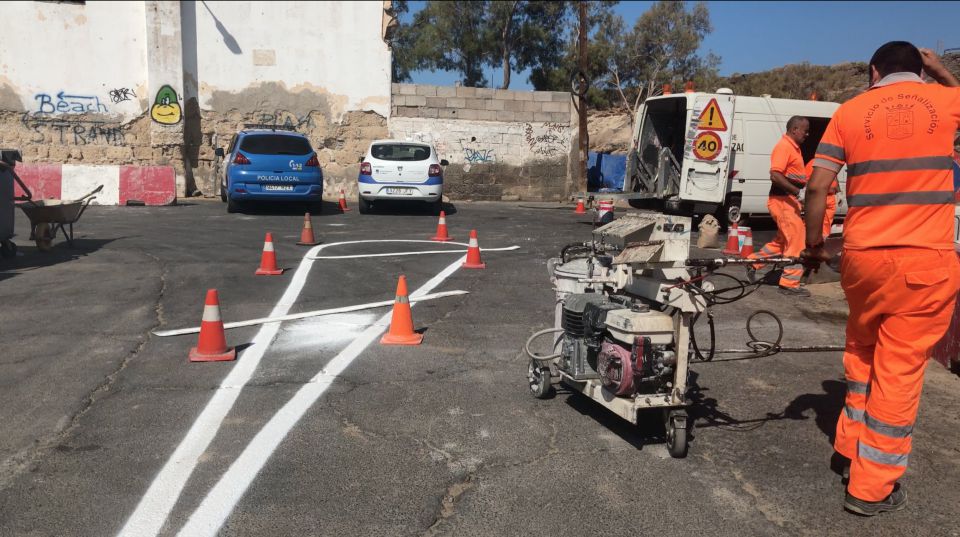The situation in the zone has become worse in recent months with a clear and present public health risk. Vigilance of the area will be intensified and they are also asking the public to avoid creating unwanted situations
3 july 2020
The Adeje council departments of Security, and Works and Services, have begun work today to re-signal the roads into and around El Puertito, reorganising traffic and clearly outlining use of roads and public spaces. The work is being undertaken as a result of requests from local residents and land owners who will also be closing a number of private lands which have been used for illegal camping, without health and cleaning facilities.
Recent circumstances have provoked a number of unpleasant situations with over-large gatherings and the corresponding risks to the health of local residents in El Puertito as well as beach users and swimmers. The council also recognises the need to control traffic in the emblematic part of the borough, which, on many occasions, is so backed up that it blocks the road to such an extent that there is no easy access for any emergency service vehicle if needed.
Furthermore, the owners of lands near the beach have, on a number of occasions, reported the illegal occupation of their lands, by both people with tents and those with caravans/motorhomes. The situation has become considerably worse in recent weeks with increased risks for local residents too. The owners have told the council that they are now proceeding to close off these tracts of land and place notices around the zone alerting people to the fact that they are prohibited from entering.
The council is working to ensure that, as a result of all the measures now being taken, El Puertito will be able to once again be a place that can guarantee health and safety to residents and those who visit to use the beaches and natural spaces around this tiny spot, in a responsible manner. The council also wishes to remind people to care for these natural spaces during and after their visits.
